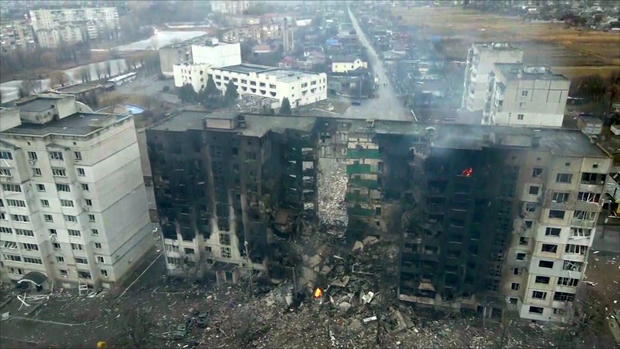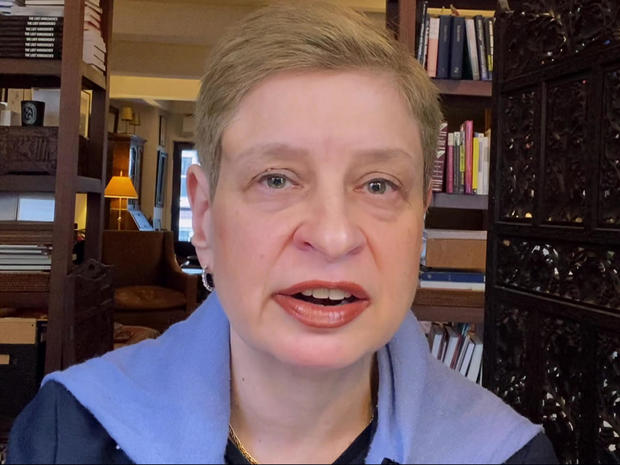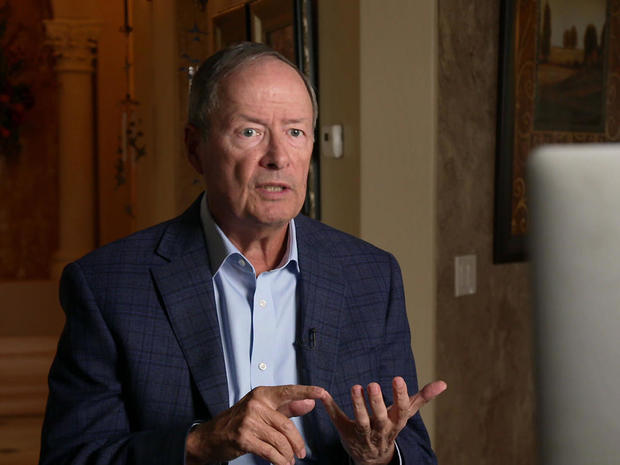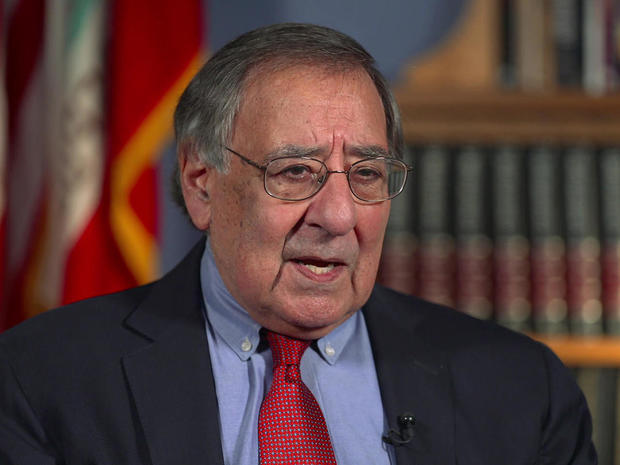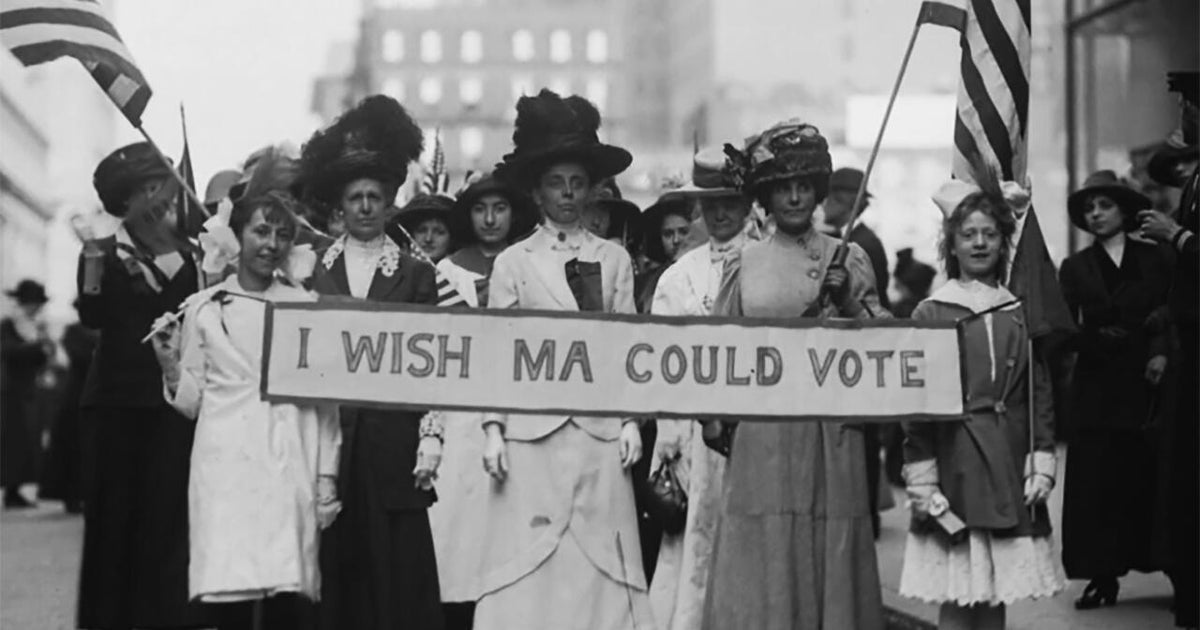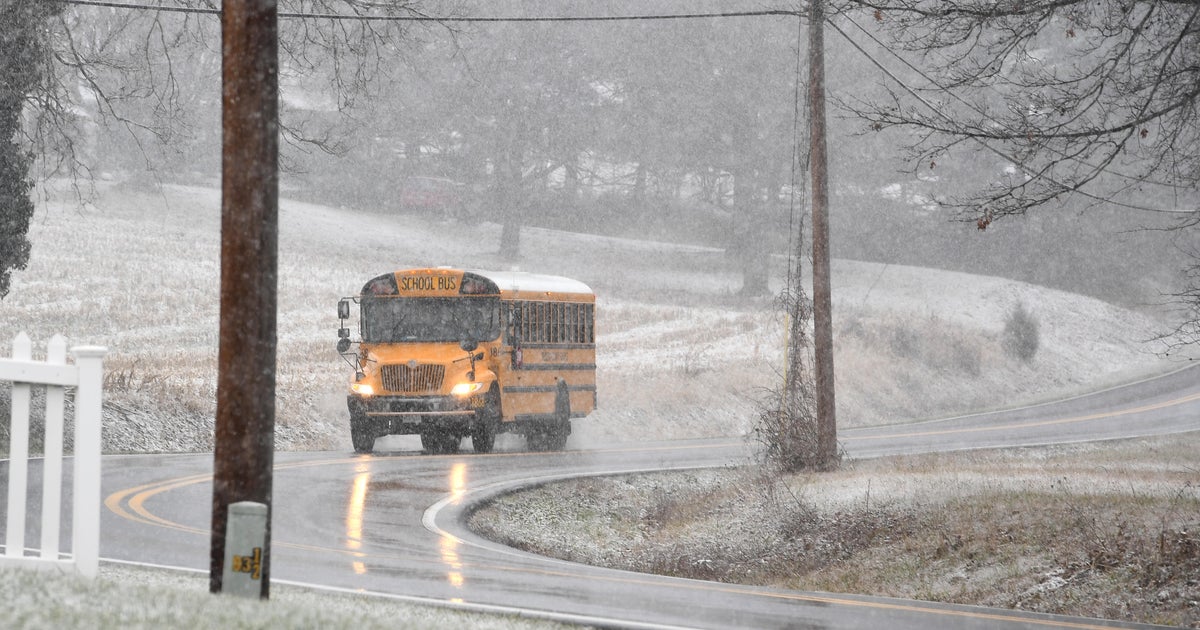How far will Putin go – and how far will America go to stop him?
Sometimes, in weighing what Russian officials are saying now, or what they may be saying next week, it helps to take a look at what they were saying just a few days ago:
- Russian Foreign Minister Sergey Lavrov, on January 28: "We want no wars"; and then, on February 25: "Nobody is going to attack the Ukrainian people … There are no strikes on civilian infrastructure";
- Deputy Foreign Minister Sergei Ryabkov, on January 10: "We have no plans, no intentions to attack Ukraine";
- Russia's Ambassador to the United Nations Vasily Nebenzya, on February 28: "A lot of fake news and a lot of fake factories that produce those news"; and
- Russian President Vladimir Putin, on February 15: ''Do we want it, war, or not? Of course, not.''
They lied.
No one can possibly know for sure what's next. But "Sunday Morning" senior contributor Ted Koppel turned to four people whose life experience and accumulated expertise gives their opinions special weight.
Nina Khrushcheva, great-granddaughter of Nikita Khrushchev, came to study in America when Russia was known as the Soviet Union. She's now a professor of international affairs at the New School in New York, but still has close ties to the country where she was born.
"People are being fired for speaking against the war," she told Koppel. "My niece just got arrested in the center of Moscow. She was just walking. And because she's young, the police assumed that she must be protesting against the war. She would just get arrested."
Khrushcheva noted that Putin's poll numbers have gone up, from 60% to 71%.
"Now, can we trust those polls?" asked Koppel. "Or does the Kremlin …"
"Oh yes. No, it's not the Kremlin. It's the Levada poll."
"But I suspect when the bodies come back, it'll be in the dark of night, and there won't be anybody there to photograph it?"
"Absolutely," Khrushcheva replied. "And they already, I mean, there are already information that they're burning those bodies. So, it's really quite Stalinesque time right now."
- Thousands of protesters arrested in Russia as sanctions take toll on country's economy ("CBS Mornings")
- Putin cracks down on media coverage ("CBS Mornings: Saturday")
Keith Alexander was a four-star general when he ran the National Security Agency. Few Americans know more about cyber warfare, or Vladimir Putin, or how he may retaliate, than Alexander does: "He's not getting the movement out of the military in Ukraine. He's not making the progress he thought. I believe he's going to turn to cyber.
"I believe he's gonna hit Europe and the United States with that cyber. And I believe those attacks will go across the wide spectrum."
Koppel asked, "Can you put it in terms of what the average citizen is going to experience?"
"The average person is gonna look at what's happening to their bank, what's happening to their power company or their credit cards or the distribution of goods, whether it's oil and gas or supplies to their stores," Alexander said. "All of that could be impacted by cyber attacks."
Fiona Hill worked at the Trump White House in the National Security Council, where she served as senior director for Europe and Russia. Her memoir, "There Is Nothing For You Here," is just out.
Hill said, "In terms of thinking about modern war, it's not just about territorial conquest. It's what we call hybrid war, information war, influence operations, propaganda, cyber, ransomware attacks. It can be the use of criminal groups, for example."
"In a sense, Fiona, you're saying that we are already engaged in World War III?" Koppel asked.
"Exactly. Well, many average American families, particularly in the heartland, have had their sons and daughters in Afghanistan, in Iraq, in Syria, and deployed overseas. We're gonna have to think that we're all part of this as well. We can't just think of, it's the families of other people in America who've been deployed overseas and who have been in harm's way. It may be all of us right now."
- Inside the mind of Vladimir Putin ("Sunday Morning")
It's hard to think of anyone with more government experience that Leon Panetta: once Chairman of the House Budget Committee, White House Chief of Staff, Secretary of Defense, CIA director, and one of the earliest voices warning of the dangers of cyberwarfare. "The reality is that cyber is today a weapon of war. Without question, it can be used to paralyze another country."
Koppel asked, "When you hear Vladimir Putin warning about consequences 'the likes of which the world has never seen before,' everybody immediately assumes that he's talking about nuclear warfare. Could he be talking about cyber warfare?"
"I don't think there's any question he could be talking about cyber warfare," Panetta replied. "Cyber as a weapon means that you don't have to deploy your air force or boots on the ground. You can simply sit at a computer and deploy a very sophisticated virus that can take down our electric grid system, take down our financial systems, our government systems, our banking systems."
President Joe Biden has repeatedly emphasized that no U.S. troops will be sent to Ukraine; at the same time, the president has warned Putin against attacking any one of the 30 nations which are part of NATO. In his State of the Union speech, Mr. Biden said, "The United States and our Allies will defend every inch of territory that is NATO territory with the full force of our collective power – every single inch."
Koppel asked, "What's being posited right now, and this is not theoretical, this could be next week or next month, that Vladimir Putin orders Russian troops into one of those Baltic States. Do we risk nuclear war to respond to that?"
"It's a dangerous moment; nobody can deny that," Panetta said. "We're dealing with somebody who might very well resort to some kind of nuclear weapon or worse. We have drawn a line, and I think if we fail to stand by that line, it would deeply undermine our credibility to ourselves and to the world."
Hill said, "[Putin] wants us to think and to believe, because he's been explicit about it, that the nuclear option is on the table. Because he has put his nuclear forces on high alert. And so, he wants us to know that he's thinking about his. Because one of the things about Vladimir Putin, if he has an instrument, no matter how cruel and unusual or terrifying that instrument may be, he wants us to think that he would use it.
"So, we have to address this issue seriously, not be intimidated ('cause that's exactly what he wants), not to be scared and to fall back."
- Lt. Col. Alexander Vindman says West must not bend to Putin's "nuclear saber-rattling" ("CBS Mornings")
Khrushcheva said, "My fear is that he's prepared to go as far as he needs to go. And that's why I hope it excludes NATO countries. But we really at this point cannot exclude that possibility."
"And that would mean that we are at the brink of nuclear war?" asked Koppel.
"It will mean that we are exactly at that World War III that we've been talking about for the last three months and so eagerly trying to avoid. That's also a sign that he's playing. And I hope he's only playing, but [he's] playing a very, very dangerous game."
Alexander said, "If he uses the nuclear weapons, I think that's the end of his regime. I think he understands that. I believe the alternative he will use is, he'll threaten with nuclear. He will use cyber. And I believe we're gonna push back in both those areas. And we have the ability to do the same thing against him. The difference will be that I believe ours will be more focused to go after him than the Russian people."
Koppel asked, "The Russian people are accustomed to enduring pain. The American people, quite frankly, are not. So, when it comes to those exchanges of cyber attacks, depriving us of what we need for our daily lives, that's what the Russians have been doing forever. We are accustomed to having what we want when we want it."
"Yeah. So, you bring out a great point," Alexander said. "And on the surface what you say makes sense. What happens when that's disturbed? I believe we'll grumble, but it's almost like what happened in World War II. It'll awaken the American people, is my belief, and they'll say, 'This has to stop.' I don't know where that will go. I have tremendous faith and confidence in the will of the American people to push back when the going gets tough."
For more info:
- Nina Khrushcheva, professor of international affairs, the New School
- General (Ret) Keith Alexander, National Security Institute, George Mason University
- Fiona Hill, senior fellow, Center on the United States and Europe, Brookings Institution
- "There Is Nothing for You Here: Finding Opportunity in the Twenty-First Century" by Fiona Hill (HarperCollins), in Hardcover, eBook and Audio formats, available via Amazon and Indiebound
- Leon Panetta, Center for Strategic & International Studies
Story produced by Jon Carras. Editor: Ed Givnish.
